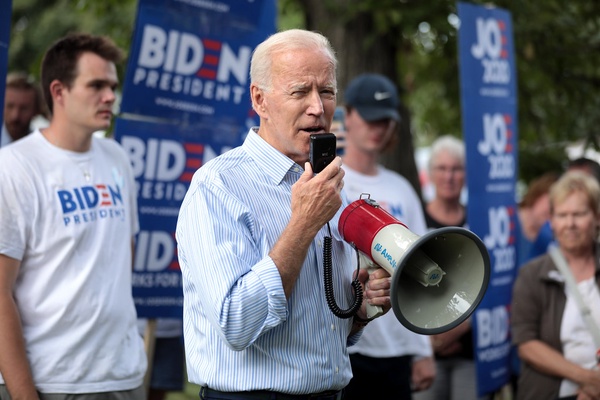President Biden is being presented with a straightforward, simple opportunity to make good on his promise to take a whole-of-government approach to fighting climate change. Appointing climate leaders who will take urgent climate action even if their job descriptions do not explicitly mention the environment is one of the easiest and most important ways Biden can display integrity.
This specific opportunity is as close to a freebie as he will get: appointing new members to a little-known but powerful board which can move federal employees’ retirement investment money out of climate-destroying industries and even, ideally, towards funds which are proactively working to fight climate change. Not only will this shift help the planet, but studies suggest it will help federal retirees’ pocketbooks as well.
This shift would have an enormous impact. As of March 2020, nearly six million federal employees, veterans, retirees, and members of the uniformed forces had Thrift Savings Plan (TSP) accounts. As the world’s largest defined contribution plan, together its accounts hold assets worth nearly $800 billion. These accounts are administered and regulated by the Federal Retirement Thrift Investment Board (FRTIB), which is led by five members who work on a part-time basis, and a full-time executive director.
Here’s the kicker: right now, four of those five board members are serving expired terms, and the fifth seat is vacant. That means Biden could appoint new members to all five of those seats and immediately usher in an era of clean, green retirement investing.
Administratively, this is a relatively simple ask. Nominees to the FRTIB do go through a Senate confirmation process, but they are able to skip the first (and often very time-consuming) step of a committee hearing. Instead, the Senate Homeland Security and Governmental Affairs Committee (HSGAC) administers a written questionnaire to the nominees before sending them directly to the Senate floor for a vote.
The FRTIB is also unique in that, unlike some other federal boards and commissions, it is not required to be bipartisan. Biden could fill each spot with climate champions without delay. Federal statute requires that people he appoints must “have substantial experience, training, and expertise in the management of financial investments and pension benefit plans.” But planetary survival requires that they also must, with no exceptions, demonstrate their understanding that climate change is a systemic risk to financial markets and the economy as a whole (not to mention people’s health and livelihoods). They must commit to addressing the climate crisis by steering the Thrift Savings Plan clear of investments in planet-destroying soon-to-be stranded assets like coal, oil, and natural gas.
Biden loves to appear bipartisan, sometimes at the expense of progress. But the health of our planet and the survival of humanity depends on him not negating his own, legitimate power. His leadership on this issue will be met with overwhelming public support, not concerns about the political parties of the members leading the charge.
Appointing new FRTIB members to tackle climate finance issues is a popular idea. Senator Jeff Merkley and Representatives Emanuel Cleaver and Rashida Tlaib are informally pushing Biden to appoint new board members. They also introduced the RESPOND Act earlier this month, which would both establish a Federal Advisory Panel on Climate Change within the FRTIB and require the Federal Reserve and the Securities and Exchange Commission (SEC) to issue an annual report on the economic costs related to climate change and federal pensions.
Federal employees themselves are also invested in this change. The group “Federal Employees for a Fossil-Free TSP” is circulating a petition calling for divestment of their funds from climate-destroying assets and for the asset managers for the TSP to support shareholder resolutions on climate change mitigation and deforestation. And why wouldn’t they be? As they say, “Funds without companies that own fossil fuel reserves have consistently outperformed the TSP C fund. We want to protect the planet and our retirement savings!”
Biden would not be the first to catalyze this necessary change. In December 2020, New York State announced it would transition its $226 billion portfolio of pension funds to be net-zero by 2040. The Paris Aligned Investment Initiative, formed in late 2019, represents 110 investors committed to aligning their combined $33 trillion assets with a 1.5°C path.
Appointing five new members to the FRTIB is low-hanging fruit that would have a huge impact on people, whose retirement funds would be invested in safer industries, and the planet, which would benefit from fossil fuel divestment. It would also signal to state and local retirement systems across the country that climate expertise and action is fundamental for modern-day pension funds.
Biden must act with urgency to stop climate carnage and cultivate a just world in the process. What better place to start than his own backyard?
Photo: “Joe Biden” by Gage Skidmore is licensed under CC BY-SA 2.0

